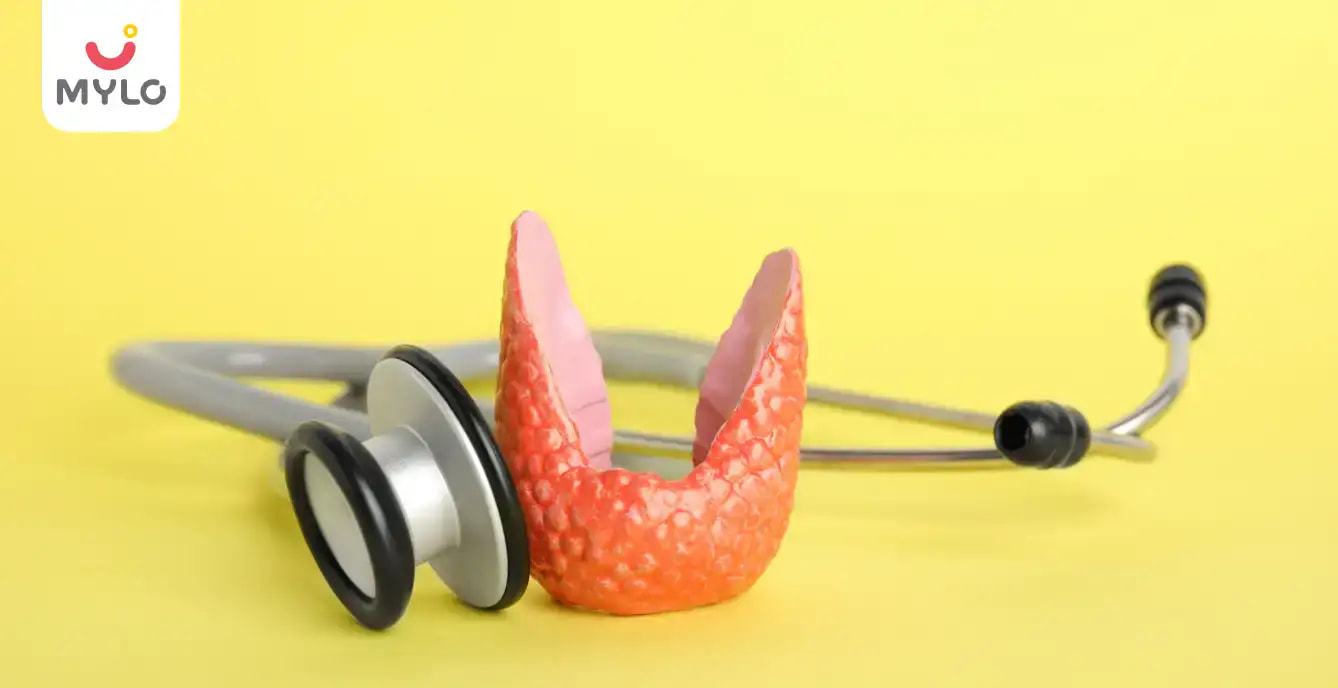Home

Common Health Problems

Papillary Thyroid Carcinoma
In this Article

Common Health Problems
Papillary Thyroid Carcinoma
Updated on 3 November 2023
Papillary is the most common type of thyroid cancer, accounting for about 80 per cent of all cases. It is more common in women than men, and the exact cause is unknown. Nevertheless, certain risk factors have been identified, including exposure to radiation, a family history of thyroid cancer, and certain inherited syndromes. Papillary thyroid cancer is usually slow growing and often confined to the thyroid gland. It can, however, spread to other parts of the body, such as the lymph nodes in the neck. The prognosis is generally good, with a cure rate of more than 95 per cent. Early detection is critical, as is prompt and aggressive treatment.
Suppose any person has been diagnosed with papillary thyroid Carcinoma. In that case, treatment will depend on many factors, including the size and location of the tumour, whether the cancer has spread beyond the thyroid, and your age and overall health. Surgery is the most common treatment for papillary thyroid cancer to remove the entire tumour. If cancer has spread to other body parts, additional treatment with radioactive iodine or radiation therapy may be necessary. Chemotherapy is generally not used to treat thyroid cancer but may be an option for certain advanced diseases. It is the most common cancer of the thyroid gland. This gland is located inside and in front of the lower neck.
Papillary Thyroid Cancer Characteristics
This is more common in women than in men. It can be present in childhood but is almost always seen in adults between 20 and 60.
Papillary thyroid cancer can be divided into two types:-
1) Follicular variant of papillary thyroid cancer
accounting for 20-30% of all papillary thyroid cancers. It is more likely to occur in women and is more indolent (slow-growing) than the classic type. Follicular thyroid cancer is more likely to be multifocal (in multiple areas) and bilateral (on both sides). In this type of cancer, the tumour cells have features that more closely resemble follicular cells than papillary cells.
2) Classic type of papillary thyroid cancer
accounting for 70-80% of all papillary thyroid cancers. It is more likely to occur in men and is more aggressive (fast-growing) than the follicular variant. In this variant, the tumour cells have features that more closely resemble papillary cells than follicular cells.
Papillary thyroid cancer is generally slow-growing and has a good prognosis. However, the classic type is more aggressive and has a poorer prognosis. These characteristics of Papillary thyroid cancer are difficult to treat.
What Are the Symptoms?
Some of the symptoms of papillary thyroid cancer may resemble thyroid symptoms in female and include the following:
-
A lump in the neck, which may be painless
-
Hoarseness
-
Difficulty swallowing
-
Persistent cough
-
Enlarged lymph nodes in the neck
These symptoms do not necessarily mean that the person has thyroid cancer. Other conditions, such as a benign thyroid nodule or goitre, can cause the same symptoms. If a patient has any of these symptoms, it is important to see the doctor to find and treat the cause, if necessary.
What Causes It?
The exact cause of papillary thyroid cancer is unknown. However, some risk factors may increase the chance of developing this condition, such as:
-
A family history of thyroid cancer
-
Exposure to radiation, such as from radiation therapy while treating another condition
-
A personal history of goitre
These causes are only linked with an increased risk of developing papillary thyroid cancer.
What Are Some Alternative Treatments for Papillary Thyroid Cancer?
Some people with papillary thyroid cancer may choose to try alternative therapies in addition to, or instead of, conventional medical treatment. Alternative therapies for this cancer are not currently supported by scientific evidence, but some people find them helpful. Some alternative therapies that have been used for papillary thyroid cancer include:
-
Acupuncture
-
Herbal supplements
-
Meditation
-
Yoga
-
Surgery
-
After surgery, you may receive radioactive iodine therapy, often taken by mouth. This substance destroys any remaining thyroid tissue. It also helps get clearer pictures so doctors can see if any of the cancer is left behind or if it comes back later.
It is important to talk with the doctor before trying any alternative therapy. Some alternative therapies may interact with conventional medical treatment and cause serious side effects.
Papillary Thyroid Carcinoma is the most common type of thyroid cancer, accounting for 80-85% of all cases. It is generally slow-growing cancer that is more common in women. It is important to consult a doctor as soon as you notice thyroid cancer symptoms in female or male. Early treatment as in all cases of cancer can help the condition from progressing to advanced stages.



Written by
Madhavi Gupta
Dr. Madhavi Gupta is an accomplished Ayurvedic doctor specializing in Medical content writing with an experience of over 10 years.
Read MoreGet baby's diet chart, and growth tips

Related Articles
Related Questions
Hello frnds..still no pain...doctor said head fix nhi hua hai..bt vagina me pain hai aur back pain bhi... anyone having same issues??

Kon kon c chije aisi hai jo pregnancy mei gas acidity jalan karti hain... Koi btayega plz bcz mujhe aksar khane ke baad hi samagh aata hai ki is chij se gas acidity jalan ho gyi hai. Please share your knowledge

I am 13 week pregnancy. Anyone having Storione-xt tablet. It better to have morning or night ???

Hlo to be moms....i hv a query...in my 9.5 wk i feel body joint pain like in ankle, knee, wrist, shoulder, toes....pain intensity is high...i cnt sleep....what should i do pls help....cn i cosult my doc.

Influenza and boostrix injection kisiko laga hai kya 8 month pregnancy me and q lagta hai ye plz reply me

Related Topics
RECENTLY PUBLISHED ARTICLES
our most recent articles

Diet & Nutrition
গর্ভাবস্থায় আলুবোখরা: উপকারিতা ও ঝুঁকি | Prunes During Pregnancy: Benefits & Risks in Bengali

Diet & Nutrition
গর্ভাবস্থায় হিং | ঝুঁকি, সুবিধা এবং অন্যান্য চিকিৎসা | Hing During Pregnancy | Risks, Benefits & Other Treatments in Bengali

Women Specific Issues
স্তনের উপর সাদা দাগ: লক্ষণ, কারণ এবং চিকিৎসা | White Spots on Nipple: Causes, Symptoms, and Treatments in Bengali

Diet & Nutrition
গর্ভাবস্থায় পোহা: উপকারিতা, ধরণ এবং রেসিপি | Poha During Pregnancy: Benefits, Types & Recipes in Bengali

Diet & Nutrition
গর্ভাবস্থায় মাছ: উপকারিতা এবং ঝুঁকি | Fish In Pregnancy: Benefits and Risks in Bengali

Diet & Nutrition
গর্ভাবস্থায় রেড ওয়াইন: পার্শ্ব প্রতিক্রিয়া এবং নির্দেশিকা | Red Wine During Pregnancy: Side Effects & Guidelines in Bengali
- ইনার থাই চ্যাফিং: কারণ, উপসর্গ এবং চিকিৎসা | Inner Thigh Chafing: Causes, Symptoms & Treatment in Bengali
- গর্ভাবস্থায় ব্রাউন রাইস: উপকারিতা ও সতর্কতা | Brown Rice During Pregnancy: Benefits & Precautions in Bengali
- Velamentous Cord Insertion - Precautions, Results & Safety
- Unlock the Secret to Flawless Skin: 7 Must-Have Qualities in a Face Serum
- Unlock the Secret to Radiant Skin: How Vitamin C Serum Can Transform Your Complexion
- Gender No Bar: 10 Reasons Why Everyone Needs a Body Lotion
- Unlock the Secret to Radiant Skin How to Choose the Perfect Body Lotion for Your Skin Type
- Top 10 Reasons to Apply a Body Lotion After Every Bath
- Communication in Toddlers: Milestones & Activities
- How to Improve Vocabulary for Toddlers?
- A Comprehensive Guide to Understanding Placenta Accreta
- Vulvovaginitis in Toddlers Causes, Symptoms and Treatment
- A Comprehensive Guide to Understanding Cerebral Palsy in Children
- Bitter Taste in Mouth During Pregnancy: Understanding the Causes and Remedies


AWARDS AND RECOGNITION

Mylo wins Forbes D2C Disruptor award

Mylo wins The Economic Times Promising Brands 2022
AS SEEN IN
















- Mylo Care: Effective and science-backed personal care and wellness solutions for a joyful you.
- Mylo Baby: Science-backed, gentle and effective personal care & hygiene range for your little one.
- Mylo Community: Trusted and empathetic community of 10mn+ parents and experts.
Product Categories
baby carrier | baby soap | baby wipes | stretch marks cream | baby cream | baby shampoo | baby massage oil | baby hair oil | stretch marks oil | baby body wash | baby powder | baby lotion | diaper rash cream | newborn diapers | teether | baby kajal | baby diapers | cloth diapers |








